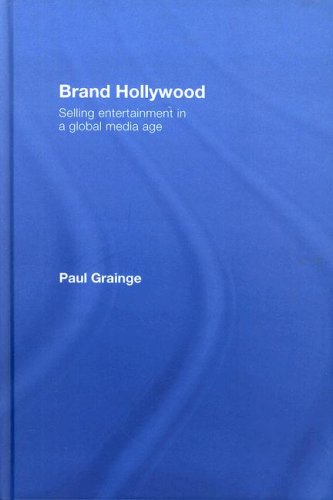

Most ebook files are in PDF format, so you can easily read them using various software such as Foxit Reader or directly on the Google Chrome browser.
Some ebook files are released by publishers in other formats such as .awz, .mobi, .epub, .fb2, etc. You may need to install specific software to read these formats on mobile/PC, such as Calibre.
Please read the tutorial at this link: https://ebookbell.com/faq
We offer FREE conversion to the popular formats you request; however, this may take some time. Therefore, right after payment, please email us, and we will try to provide the service as quickly as possible.
For some exceptional file formats or broken links (if any), please refrain from opening any disputes. Instead, email us first, and we will try to assist within a maximum of 6 hours.
EbookBell Team

5.0
110 reviewsFrom the growth in merchandising and product placement to the rise of the movie franchise, branding has become central to the modern blockbuster economy. In a wide-ranging analysis focusing on companies such as Disney, Dolby, Paramount, New Line and, in particular, Warner Bros., Brand Hollywood provides the first sustained examination of the will-to-brand in the contemporary movie business. Outlining changes in the marketing and media environment during the 1990s and 2000s, Paul Grainge explores how the logic of branding has propelled specific kinds of approach to the status and selling of film. Analyzing the practice of branding, the poetics of corporate logos, and the industrial politics surrounding the development of branded texts, properties and spaces - including franchises ranging from Looney Tunes to Lord of the RingsВ and Harry Potter to The Matrix - Grainge considers the relation of branding to the emergent principle of вЂtotal entertainment’.
В
Employing an interdisciplinary method drawn from film studies, cultural studies and advertising and media studies, Brand Hollywood demonstrates the complexities of selling entertainment in the global media moment, providing a fresh and engaging perspective on branding’s significance for commercial film and the industrial culture from which it is produced.